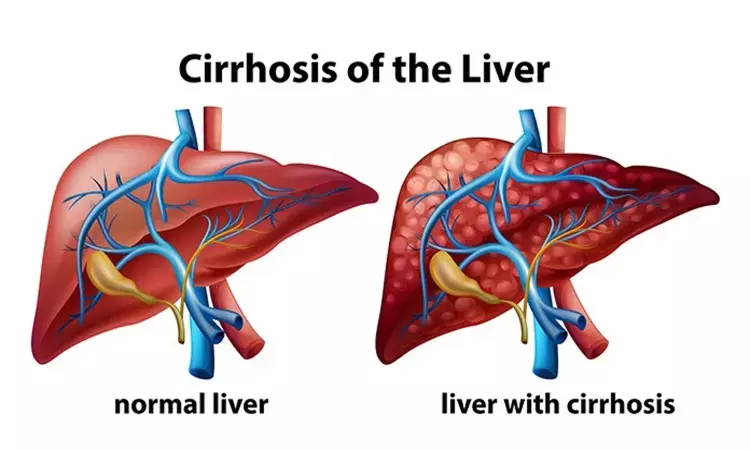- Home
- Medical news & Guidelines
- Anesthesiology
- Cardiology and CTVS
- Critical Care
- Dentistry
- Dermatology
- Diabetes and Endocrinology
- ENT
- Gastroenterology
- Medicine
- Nephrology
- Neurology
- Obstretics-Gynaecology
- Oncology
- Ophthalmology
- Orthopaedics
- Pediatrics-Neonatology
- Psychiatry
- Pulmonology
- Radiology
- Surgery
- Urology
- Laboratory Medicine
- Diet
- Nursing
- Paramedical
- Physiotherapy
- Health news
- Fact Check
- Bone Health Fact Check
- Brain Health Fact Check
- Cancer Related Fact Check
- Child Care Fact Check
- Dental and oral health fact check
- Diabetes and metabolic health fact check
- Diet and Nutrition Fact Check
- Eye and ENT Care Fact Check
- Fitness fact check
- Gut health fact check
- Heart health fact check
- Kidney health fact check
- Medical education fact check
- Men's health fact check
- Respiratory fact check
- Skin and hair care fact check
- Vaccine and Immunization fact check
- Women's health fact check
- AYUSH
- State News
- Andaman and Nicobar Islands
- Andhra Pradesh
- Arunachal Pradesh
- Assam
- Bihar
- Chandigarh
- Chattisgarh
- Dadra and Nagar Haveli
- Daman and Diu
- Delhi
- Goa
- Gujarat
- Haryana
- Himachal Pradesh
- Jammu & Kashmir
- Jharkhand
- Karnataka
- Kerala
- Ladakh
- Lakshadweep
- Madhya Pradesh
- Maharashtra
- Manipur
- Meghalaya
- Mizoram
- Nagaland
- Odisha
- Puducherry
- Punjab
- Rajasthan
- Sikkim
- Tamil Nadu
- Telangana
- Tripura
- Uttar Pradesh
- Uttrakhand
- West Bengal
- Medical Education
- Industry
AGA recommends change in testing protocol for cirrhosis patients

Bethesda, MD - Patients with cirrhosis, or permanent liver damage, are at higher risk for coagulation disorders, which impact your body's ability to control blood clotting. This puts cirrhosis patients at increased risk of morbidity and mortality when undergoing diagnostic or therapeutic invasive procedures.
The American Gastroenterological Association (AGA) has released new clinical guidelines to change how physicians identify and treat coagulation disorders in patients with cirrhosis. In this new guidance, AGA recommends against the use of extensive preprocedural testing to estimate clotting in patients with cirrhosis. These guidelines, which were developed after a detailed review of available literature, are published in Gastroenterology, AGA's official journal.
"Patients with cirrhosis typically have abnormal markers of coagulation, which in the past were interpreted as indicating a higher risk of bleeding," says lead author Dr. Robert S. O'Shea of the Cleveland Clinic Main Campus in Cleveland, Ohio. "However, this has not been borne out in clinical practice, and accumulating evidence suggests that the use of these tests is inappropriate. Despite this, because of the concerns related to these tests of blood clotting, the care of these patients has been compromised - requiring frequent and often unnecessary testing or transfusion prior to undergoing routine procedures important in their treatment. This has essentially exposed them to risk with no benefit."
Key guideline recommendations: Extensive preprocedural testing, including measurements of prothrombin time/international normalized ratio (PT/INR) or platelet count, should not routinely be performed in patients with stable cirrhosis undergoing common GI procedures.
Blood products, including fresh frozen plasma (FFP) or platelet transfusion, should not routinely be used for bleeding prophylaxis in patients with stable cirrhosis undergoing common GI procedures.
Standard pharmacologic venous thromboembolism (VTE) prophylaxis should be given to hospitalized patients with cirrhosis like other medical patients.
Anticoagulation should be used to treat acute or subacute nontumoral portal vein thrombosis (PVT) in patients with cirrhosis to improve patient outcomes.
Cirrhosis is permanent injury or damage to the liver by chronic diseases, such as viral hepatitis (b or c), nonalcoholic fatty liver disease, hemochromatosis or long-term alcohol abuse. Learn more in the AGA GI Patient Center.
For further reference log on to:
https://www.gastrojournal.org/article/S0016-5085(21)03382-5/fulltext
Hina Zahid Joined Medical Dialogue in 2017 with a passion to work as a Reporter. She coordinates with various national and international journals and association and covers all the stories related to Medical guidelines, Medical Journals, rare medical surgeries as well as all the updates in the medical field. Email: editorial@medicaldialogues.in. Contact no. 011-43720751
Dr Kamal Kant Kohli-MBBS, DTCD- a chest specialist with more than 30 years of practice and a flair for writing clinical articles, Dr Kamal Kant Kohli joined Medical Dialogues as a Chief Editor of Medical News. Besides writing articles, as an editor, he proofreads and verifies all the medical content published on Medical Dialogues including those coming from journals, studies,medical conferences,guidelines etc. Email: drkohli@medicaldialogues.in. Contact no. 011-43720751


